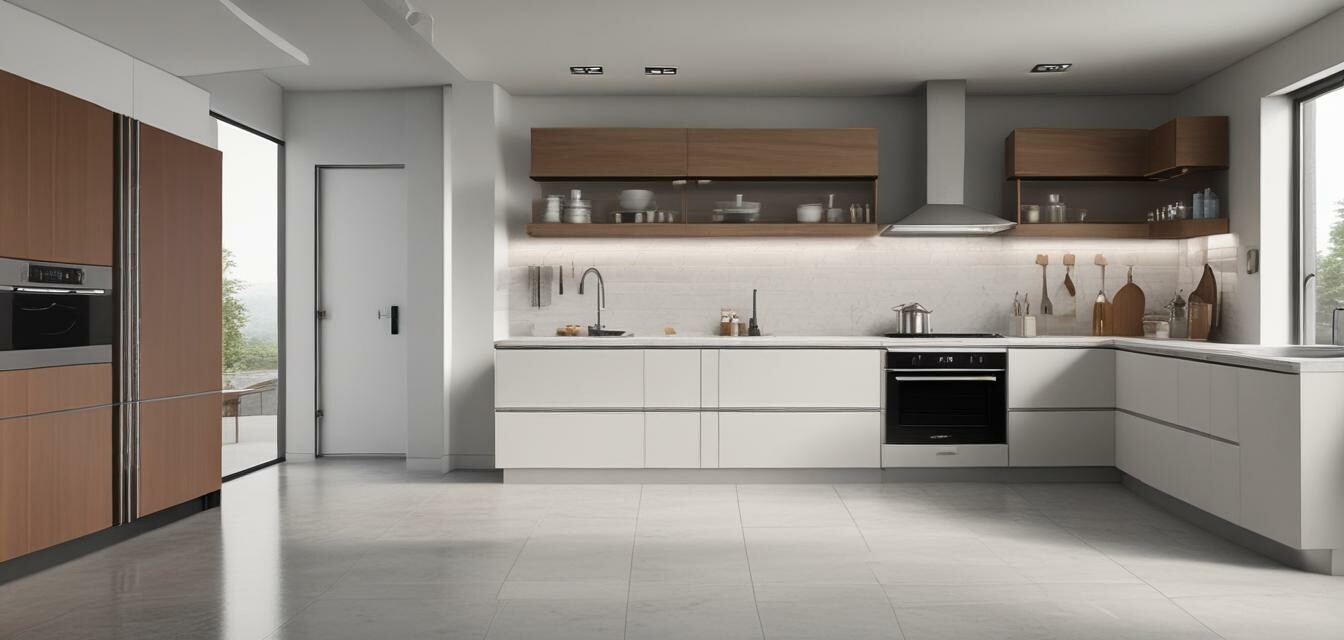
Kitchen Automation: Trends Shaping 2024
Key Takeaways
- Smart kitchens are becoming more intuitive and user-friendly.
- Energy-efficient appliances are not only sustainable but are gaining popularity.
- Integration with smart home systems is a crucial trend for 2024.
- Automation enhances meal prep efficiency and convenience for busy lifestyles.
- Touchless technology is expanding across various kitchen appliances.
The world of kitchen appliances is undergoing rapid transformation, driven by advancements in technology and the needs of busy households. As we look towards 2024, it's essential to explore the latest trends in kitchen automation that are revolutionizing meal prep, cooking efficiency, and overall kitchen experiences. From energy-efficient appliances to smart integrations, let's dive into the key developments that are shaping our kitchens.
1. The rise of smart kitchens
Smart kitchens are becoming increasingly prevalent as they offer a seamless blend of convenience and technology. Appliances that can communicate with each other via home networks provide users with more control than ever before. Imagine being able to preheat your oven via your smartphone or getting real-time updates on your refrigerator's contents. This trend is transforming our culinary experiences.
Key features of smart kitchens
- Remote access through mobile apps
- Voice control with smart assistants
- Integration with home automation systems
- Energy management tools for efficient use
2. Energy-efficient appliances
The push for sustainability is gaining momentum in the kitchen appliance market. Energy-efficient appliances are not just better for the environment; they also help households save money on utility bills. Products certified by Energy Star reduce energy consumption while maintaining high performance.
Benefits of energy-efficient appliances
- Lower utility bills
- Reduced carbon footprint
- Increased appliance lifespan
- Less heat generation in the kitchen
3. Integration with smart home systems
As smart homes become a standard, kitchen appliances are following suit. Integration with systems like Amazon Alexa or Google Assistant makes controlling your kitchen devices easier than ever. This means no more running around to toggle switches; voice commands can manage everything from lighting to oven settings.
Popular smart home integrations
- Voice-activated controls
- Scenario-based automations (e.g., cooking mode)
- App-based controls for personalized customization
- Real-time notifications for appliance alerts
4. Enhanced meal prep efficiency
Automation in kitchens is designed to save time and streamline meal preparation. Devices that automate chopping, cooking, and even cleaning are gaining popularity. Such tools make cooking a more manageable task for families with hectic schedules.
Examples of time-saving technologies
| Appliance | Function |
|---|---|
| Smart oven | Automates cooking times and temperatures |
| Food processor | Chops ingredients quickly and uniformly |
| Robot vacuum | Cleans the kitchen floor automatically |
5. The expansion of touchless technology
Touchless faucets and appliances reduce mess and enhance hygiene in kitchens. As hygiene becomes more of a priority, advancements in touchless technology will offer convenience and ease, making it easier to maintain cleanliness while cooking.
Benefits of touchless technology
- Minimizes cross-contamination
- Convenient for busy cooks with dirty hands
- Helps conserve water by controlling flow
Conclusion
Kitchens are continuing to evolve, with automation trends leading the way for increased efficiency and convenience. Embracing these innovations can enhance your cooking experience and contribute to a more streamlined kitchen. With smart technologies, energy-efficient appliances, and enhanced automation, your kitchen can be transformed into a space that meets the demands of modern life.
Pros
- Increased convenience and time savings.
- Savings on energy bills through efficiency.
- Improved hygiene and cleanliness.
- Enhanced control and monitoring of kitchen tasks.
Cons
- Higher initial costs for advanced appliances.
- Learning curve for new technologies.
- Dependence on Wi-Fi and technology.
If you want to know more about energy-efficient options, check our guide on buying guides. Stay updated with the latest news in kitchen automation to enhance your kitchen. Ready to dive into advanced appliances? Explore our smart ovens and discover the future of cooking!